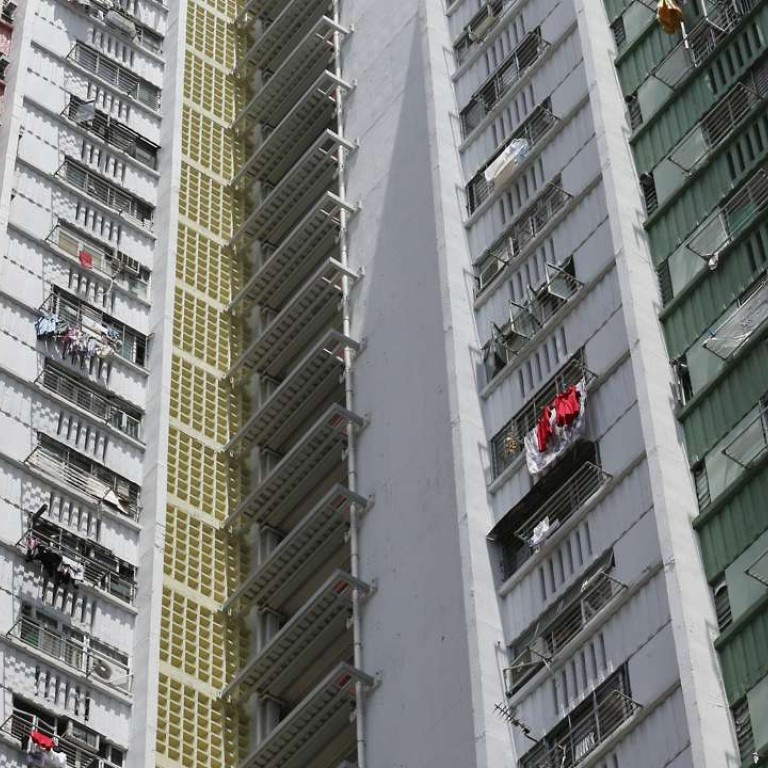
‘Focus on quality instead of low cost’ for outsourced repair work on Hong Kong public housing
Audit finds maintenance work to be ‘unsatisfactory’ while lawmaker claims tenants have no confidence in Housing Authority’s ability to fix things
Poor maintenance of public housing flats, resulting in a low vote of confidence by tenants in the Housing Authority, warrants a review of the bidding system for contracts of such services, advisors say.
A government audit report published by the Audit Commission yesterday on maintenance and safety related improvements of public rental housing found the quality of repair works – which are outsourced to contractors – to be “generally unsatisfactory and on a deteriorating trend”.
“There is still a certain value in outsourcing this work, but perhaps there is a need for more regulatory oversight in terms of service quality in the bidding process,” said Anthony Chiu Kwok-wai, a member of the authority’s Subsidised Housing Committee.
“If they don’t change the standards of the bidding, it will only keep getting worse.”
Speaking on an RTHK programme Thursday, Chiu said many public housing tenants were satisfied with maintenance work at first, only to see the old problems surface again later.
According to the audit report, of 133 flats selected for checks from February 2014 to March 2016, 89 per cent had at least 385 items of unsatisfactory repair works under the TMS requiring replacement or rectification.

Lawmaker Alice Mak Mei-kuen, who chairs the Legislative Council’s housing panel, said she received many complaints from residents regarding issues such as leaky faucets or water seepage from ceilings. These had been fixed but worsened after repairs.
“Tenants now feel even if these were fixed, they might not be fixed well or might even be worse than before,” Mak, who was also on the same radio programme, said.
“That’s why many are not willing to let the authority come in for inspection. They would rather tolerate a flat with problems than let [inspectors] in.”
Mak said the crux of the problem was that repair contracts were outsourced to a contractors based on a system that favoured “the lowest bidder”, rather than those with tighter quality control.
That’s why many tenants are not willing to let the authority come in for inspection. They would rather tolerate a flat with problems than let [inspectors] in
She had doubts about the effectiveness of the Housing Authority’s points system to induce tenants into complying and allowing inspectors into their homes, saying: “It’s not ideal … The tenants aren’t doing something bad, they just don’t have confidence in the repairs.”
But Chiu from the Subsidised Housing Committee also believed there were other reasons tenants were not letting inspectors in, such as wanting to avoid the hassle of moving things around to facilitate checks, or having unauthorised alterations to the flat that they didn’t want seen.
The watchdog called on the Housing Department – the executive arm of the Housing Authority – to step up final inspections of work and consider regulatory action against contractors whose work frequently fell below expected standards.
The department said it welcomed and generally agreed with the audit recommendations and assessment.
Meanwhile a member of Legco’s Public Accounts Committee, Lam Cheuk-ting of the Democratic Party, said the committee would hold hearings for housing officials to come clean on what went wrong with the maintenance and safety-related improvements of public housing flats.
“The problem revealed in the audit reports was very serious, and it affected several hundred thousands of public housing residents,” Lam said.

